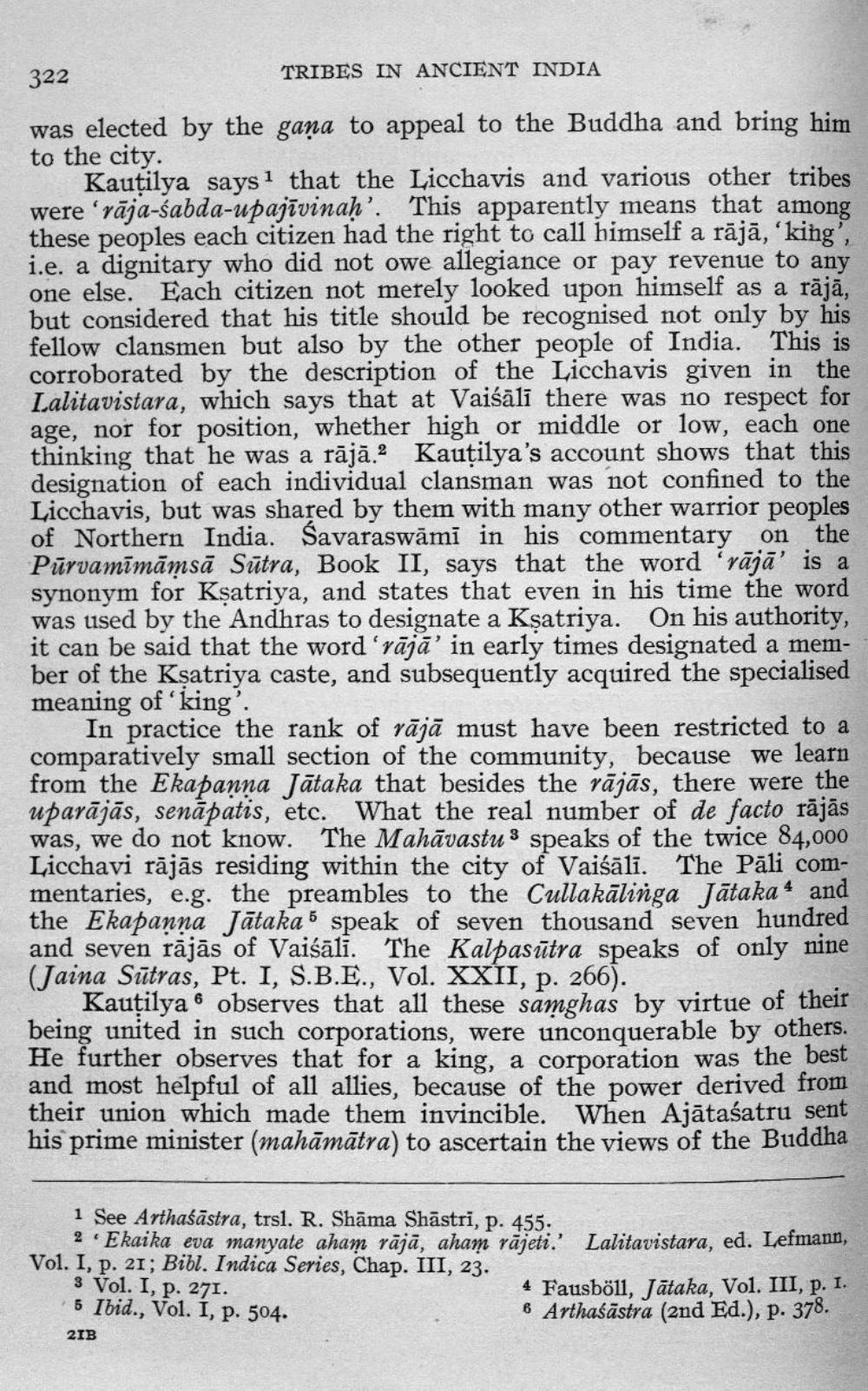________________
322
TRIBES IN ANCIENT INDIA
was elected by the gana to appeal to the Buddha and bring him to the city.
Kautilya says 1 that the Licchavis and various other tribes were 'rāja-śabda-upajīvinaḥ'. This apparently means that among these peoples each citizen had the right to call himself a rājā, 'king", i.e. a dignitary who did not owe allegiance or pay revenue to any one else. Each citizen not merely looked upon himself as a rājā, but considered that his title should be recognised not only by his fellow clansmen but also by the other people of India. This is corroborated by the description of the Licchayis given in the Lalitavistara, which says that at Vaiśālī there was no respect for age, nor for position, whether high or middle or low, each one thinking that he was a rājā. Kautilya's account shows that this designation of each individual clansman was not confined to the Licchavis, but was shared by them with many other warrior peoples of Northern India. Savaraswāmī in his commentary on the Pūrvamīmāmsā Sūtra, Book II, says that the word 'rājā' is a synonym for Ksatriya, and states that even in his time the word was used by the Andhras to designate a Kșatriya. On his authority, it can be said that the word 'rājā' in early times designated a member of the Ksatriya caste, and subsequently acquired the specialised meaning of 'king'.
In practice the rank of rājā must have been restricted to a comparatively small section of the community, because we learn from the Ekapanna Jātaka that besides the rājās, there were the uparājās, senāpatis, etc. What the real number of de facto rājās was, we do not know. The Mahāvastu 3 speaks of the twice 84,000 Licchavi rājās residing within the city of Vaiśāli. The Pāli commentaries, e.g. the preambles to the Cullakālinga Jātaka 4 and the Ekapanna Jātaka 5 speak of seven thousand seven hundred and seven rājās of Vaiśāli. The Kalpasūtra speaks of only nine (Jaina Sutras, Pt. I, S.B.E., Vol. XXII, p. 266).
Kautilya 6 observes that all these samghas by virtue of their being united in such corporations, were unconquerable by others. He further observes that for a king, a corporation was the best and most helpful of all allies, because of the power derived from their union which made them invincible. When Ajātaśatru sent his prime minister (mahāmātra) to ascertain the views of the Buddha
1 See Arthaśāstra, trsl. R. Shāma Shāstri, p. 455.
2 • Ekaika eva manyate aham rājā, aham rājeti.' Lalitavistara, ed. Lefmann, Vol. I, p. 21; Bibl. Indica Series, Chap. III, 23. 3 Vol. I, p. 271.
* Fausböll, Jataka, Vol. III, p. I. 5 Ibid., Vol. I, p. 504.
6 Arthaśāstra (2nd Ed.), p. 378. 21B




